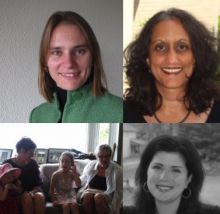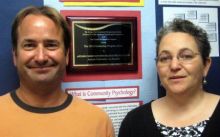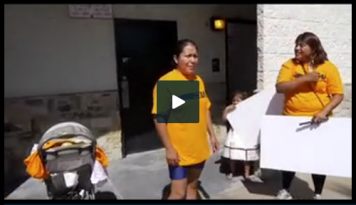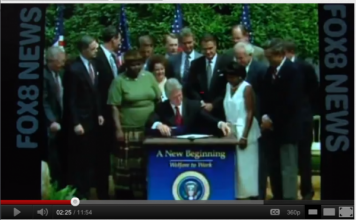 And Then What? Four Community Psychologists Reflect on Their Careers Ten Years After Graduation
And Then What? Four Community Psychologists Reflect on Their Careers Ten Years After GraduationSherri van de Hoef, Purnima Sundar, Stephanie Austin and Theresa Dostaler
PEER REVIEWED
In this paper, we provide a glimpse into the career paths of 4 Canadian CP graduates, and describe how our CP training prepared us for our lives after graduation. We completed our master’s degrees in CP at Wilfrid Laurier University (WLU) (Ontario, Canada) approximately ten years ago. Two of us went on to obtain PhDs while the other two went straight into the workforce. We represent diverse professions: research/evaluation consultant in a hospital setting, government policy analyst, independent researcher/consultant, and Canadian diplomat.
Read more... Creating and Sharing Critical Community Psychology Curriculum for the 21st Century: An Invitation
Creating and Sharing Critical Community Psychology Curriculum for the 21st Century: An InvitationMary Watkins and Nuria Ciofalo (Pacifica Graduate Institute)
PEER REVIEWED
Authors invite dialogue on critical community psychology graduate curriculum, sharing an approach that draws from depth psychologies, liberation psychologies, ecopsychology, and indigenous psychologies. Grounded in a participatory action model of research and ethics, students, alumni, and faculty pursue collaborative community and ecological fieldwork and research, crafting a postmodern critical community psychology for the 21st century. Authors call for reflection on the issues that mitigate against individual and community well-being that must be addressed in community psychology programs, and the concomitant theories, capabilities, and sensibilities to address them that need to be nurtured in students and educators. They call for us to engage students through transformative learning approaches and critical pedagogy in emancipatory community and ecological fieldwork and research.
Read more... Community Psychology Values-Driven Pedagogy: The Foundation for Empowering Educational Settings
Community Psychology Values-Driven Pedagogy: The Foundation for Empowering Educational SettingsSylvie Taylor, Ph.D. and Gregor V. Sarkisian, Ph.D. (Antioch University Los Angeles)
PEER REVIEWED
This paper discusses the role of community psychology values-driven pedagogy as the foundation for the enactment of an empowering educational setting for community psychology graduate students. Using the Applied Community Psychology Specialization at Antioch University Los Angeles as a model, curricular and extracurricular program elements that foster student well-being are identified. A model of an empowering educational setting is presented. Explored are intrapersonal, interactional, behavioral, and longitudinal empowerment as they relate to student and faculty roles. Student empowerment outcomes and indicators of student learning are highlighted with case examples.
Read more... Where in the World is My Community? It is Online and around the World according to Missionary Kids
Where in the World is My Community? It is Online and around the World according to Missionary KidsColleen Loomis, PhD & Dana Friesen, MSW
PEER REVIEWED
Having physical access to a community and having a sense of community is not always an easy option for Third Culture Kids (TCKs) who live in a culture other than their parents’ native cultures such as missionary families and government and non-governmental agency workers located in various countries around the world. One TCK stakeholder (a co-author) decided to practice creating community and research by conducting a participatory action research project with a goal of engaging a subgroup of TCKs called missionary kids (MKs) to meet online and to create a sense of community. Findings have implications for expanding theories of sense of community and for practices to create and sustain online communities.
Read more...by Carolyn Kagan, Mark Burton, Paul Duckett, Rebecca Lawthom, Asiya Siddiquee
Review by Scot D Evans, PhD
Community psychology will never have an impact on the social justice issues facing marginalized communities simply by producing practitioners who apply community psychological techniques and skills to complex problems. We need thinkers and actors who are grounded in critical social theory and are able work alongside community groups to problematize existing power relations and push for social change.

Union de Vecinos: Community and Civic Action
This video is the first of a series of pieces concerning Union de Vecinos. This segment takes you through and explains various projects that Union de Vecinos took-on within the city of Maywood. These issues include politics, police, immigrant rights, tenant rights, issues with LAUSD (Los Angeles Unified School District) and water quality in the city.
Watch the video
Ashlee D. Lien, Justin P. Greenleaf, Michael K. Lemke, Sharon M. Hakim, Nathan P. Swink, Rosemary Wright, and Greg Meissen, Wichita KS, USA
Even among people who know and have seen the value of logic models, the term can “strike fear into the hearts” of experienced community psychologists and veteran non-profit staff and board members alike. Technical terms may confuse and intimidate community members and grassroots partners who are the foundation of the practice of community psychology. This tool makes it easier to get this important task completed.
Meg A. Bond, University of Massachusetts Lowell & Cambridge, MA, USA
Although not a Tool per se, this description of how a community took a common event for most of us -- a school fundraiser -- and transformed (or at least re-framed it) as a community development process. We hope that this innovative approach will spark ideas among others.

Growing Green Partnerships
This video captures a portion of Clevland and Wineburg's (2010) book, Pracademics and Community Change (Lyceum) reviewed in this journal (Vol 1 Iss 3). It illustrates how a community based organization changed the lives of people it serves, and its community through it long-term commitment to recycling lives and showing that there is room in the "green economy" for the working poor.
Watch the video